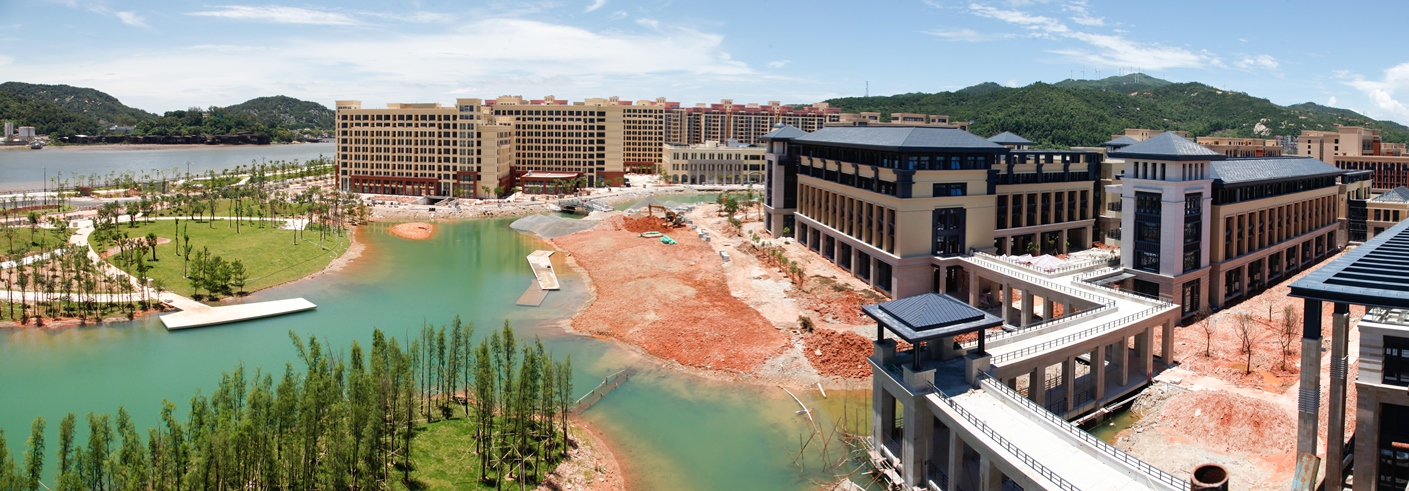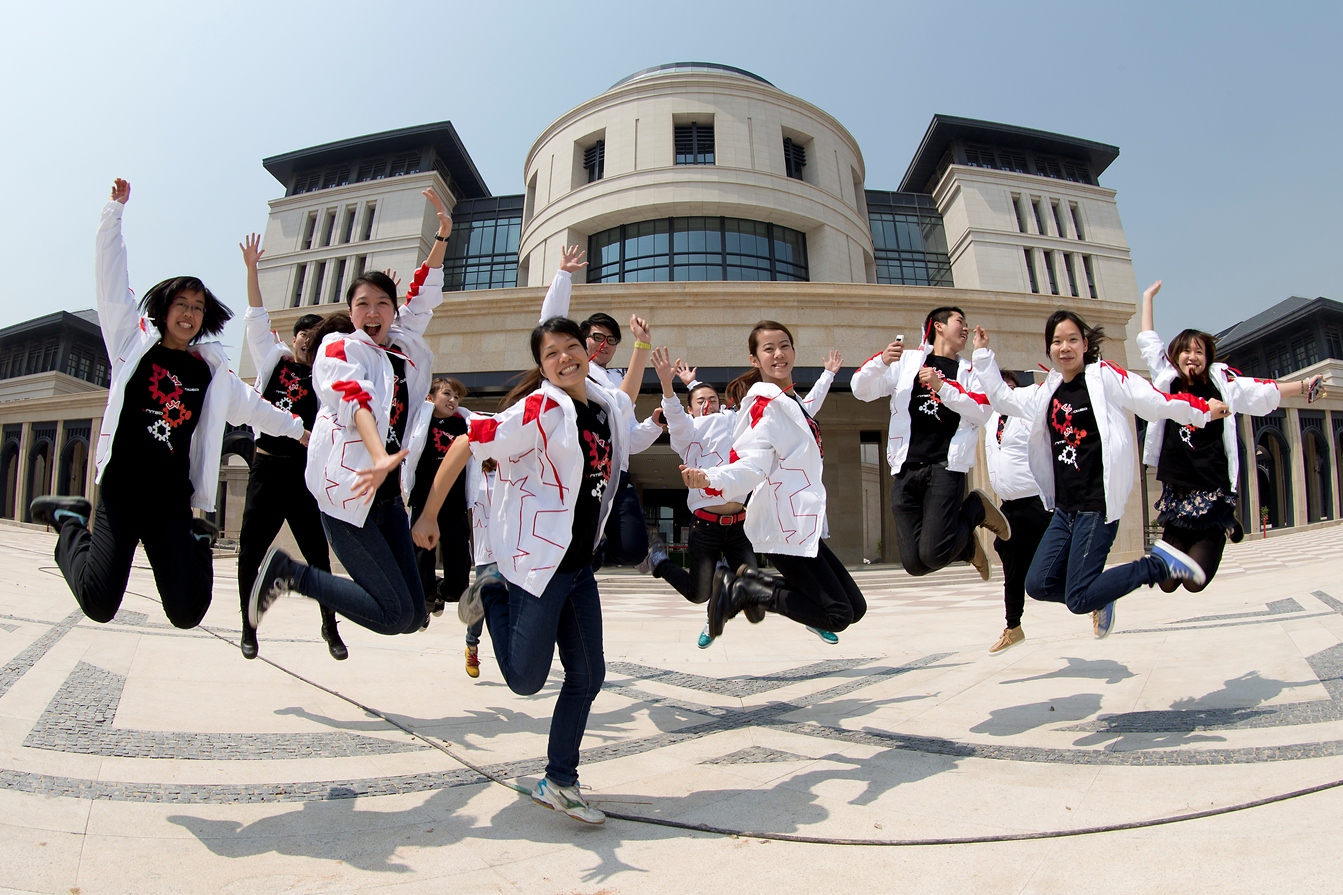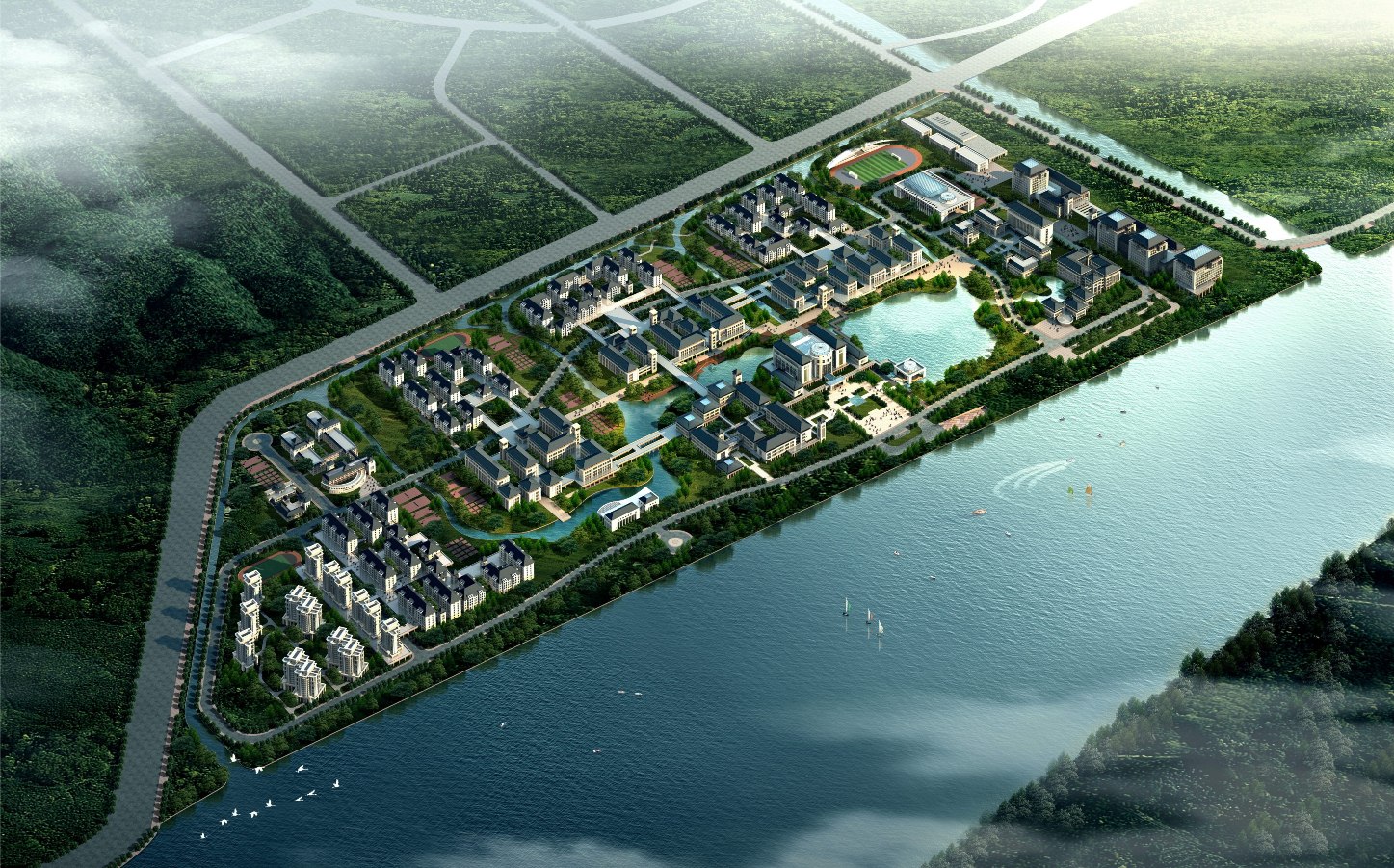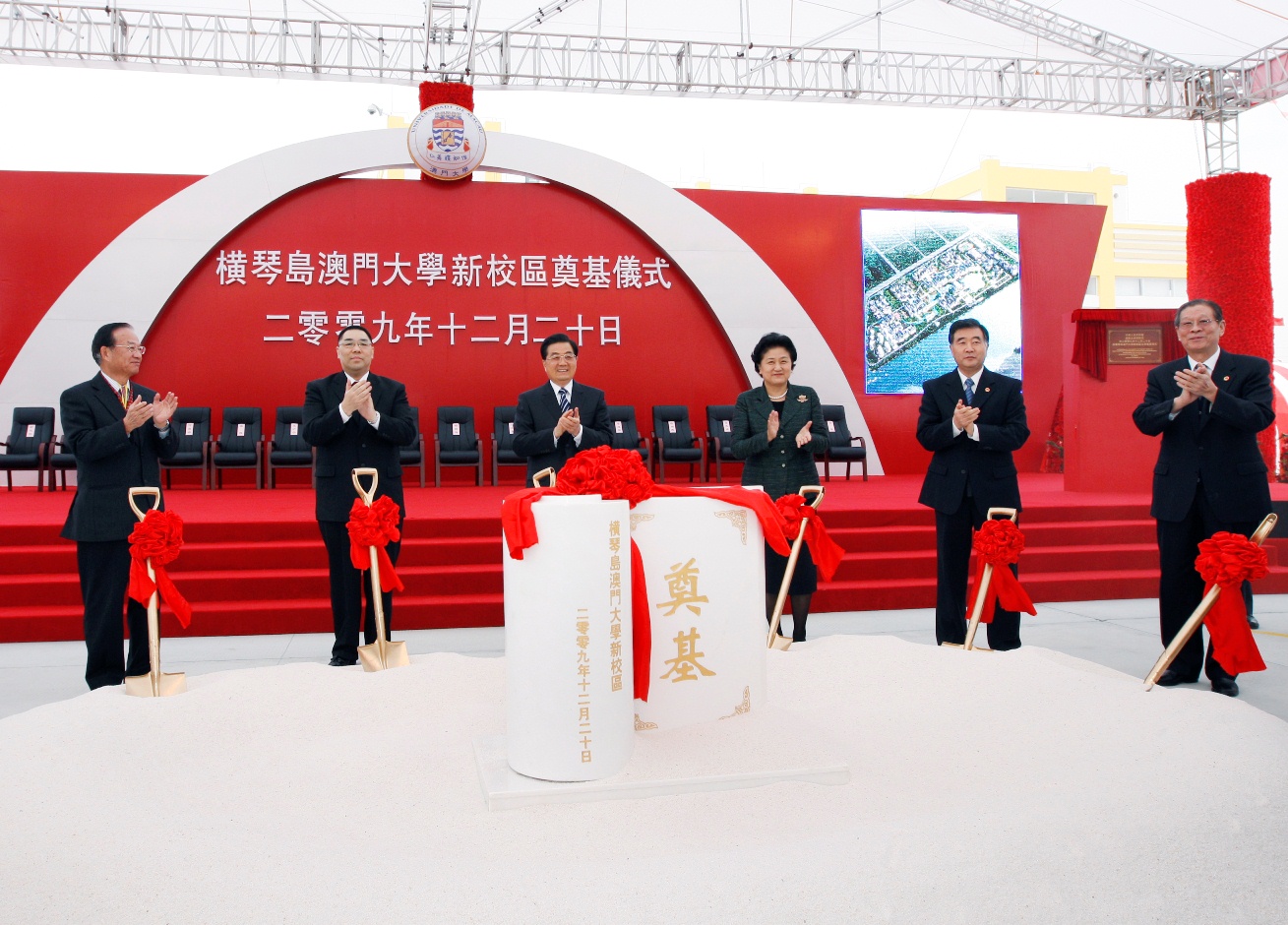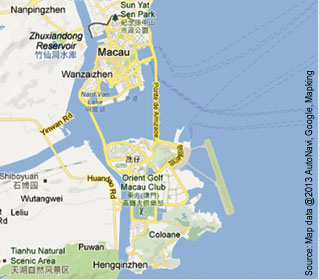Written by Prof Da Hsuan Feng, Senior Vice President for Global
Strategy, Planning and Evaluation of National Tsing Hua University
“No one 20 years ago would have dreamed that the sleepy town of Macau would one day be giving high fives to the front line of higher education. Who would have thought then that this small Special Administrative Region (SAR) would now be renting land from the Mainland in order to build a world-class university? That this has now happened is an indication of how far we have come in political, cultural and economic terms.
For me, the University of Macau should be seen as the rest of the world’s window on higher education in the Asia Pacific region. If it is successful, the impact will surely be global. Therefore the world should really take note of this development.”
The Start of Higher Education in Macau
Macau is tiny. It is roughly 30 square kilometres. Its “minuteness” is matched by its small population which is about half a million. Politically, Macau had been a Portuguese colony for 400 years before becoming an SAR (Special Administrative Region) of the People’s Republic of China in 1999. It was the second region (the first is Hong Kong) to take on this special title under the auspices of the now world famous “one country two systems” policy. Since becoming an SAR Macau has made enormous strides in economic development. Its gaming — a euphemism for gambling — industry has grown exponentially. Indeed, Macau’s gaming revenue today is many times larger than its closest competitor Las Vegas in the United States.
The history of higher education in Macau is a short one. Prior to 1981, there were for all practical purposes no tertiary educational institutions at all. Secondary school graduates of Macau would either go to Hong Kong, Taiwan, the Mainland or overseas for their tertiary education. This situation was altered somewhat when the University of Macau (UM) was founded in 1981 as a private institution. Later, in 1991, some eight years before the handover of Macau’s sovereignty, UM was acquired by the then Macau Portuguese government and thus became a public university.
I suspect that with the handover looming on the horizon the Portuguese colonial government probably did not have the time or the resources, and maybe even more importantly, the need to seriously consider developing UM into a modern university. For these reasons, UM’s campus, like Macau itself, was small — roughly 120 th of a square kilometre. If it wasn’t actually the world’s smallest university, it was certainly one of the smallest. And even if the government had wanted to expand it — and they probably did not — there was no land available to do so.
Hence, the 20th century ended quietly for both Macau and its university.
Developing a World-class University from Gaming Revenue
There are a number of regions of the world that have made the gaming industry their primary or sole source of revenue. Las Vegas, as mentioned earlier, is one. Atlantic City in New Jersey is another. On a much smaller scale, Monte Carlo in Europe is another. Then there is Macau. All of them are situated in North America or Europe. Macau is the only one in Asia and it is the only one that has undergone a monumental political transformation in the 20th century.
Such a transformation would be nothing extraordinary if Macau had merely leveraged on the opportunity to change itself from the relatively small gaming centre that it used to be to the mega one that it is today. If that were all that had happened, Macau would be looked on as merely a larger version of Las Vegas.
But something in the middle of the first decade of the 21st century made Macau absolutely and stunningly different from all its counterparts in North America and Europe. The leadership of Macau, having now acquired a very deep financial pocket, began to think of how to use this “newfound wealth” to transform the small SAR into something that it was not before.
They realised that what was sorely missing in Macau was a world-class university simply because for any modern city to become world-class it must first become a city of knowledge, but before it can become this it needs to have a world-class university.
So their attention turned to the only public university that was in Macau, UM.
Building a world-class university needs at least four major components:
- Financial resources
- A strategy-minded and sustainable leadership team with courage and vision
- The land mass to expand
- A world-class faculty to attract world-class students
Macau now has the first component.
UM has the second factor — it has appointed a new Rector (i.e. President) through global recruitment.
The third was a major challenge. Macau, with only 30 square kilometres, has absolutely no land to spare. Without the land to expand onto there could be no hope of transforming UM into a world-class university.
There is a Sung Dynasty poem by the famous poet Lu You which contains the following lines: “Just as I was about to lose hope of ever finding the way out after navigating a maze of similar-looking mountains and rivers, the entrance to a village with weeping willow trees and blooming flowers greeted my eyes”. Essentially this means that however hopeless the situation may appear to be there is always a way out. This philosophy, it seems to me, is the underlying reason why Asia Pacific today is one of the most robust regions in the world. People always seem to find a way to overcome difficulties.
The solution to the land problem was almost miraculous.
The following is a map of Macau and the surrounding area, which is entirely within the jurisdiction of the People’s Republic of China. Macau has two sections — a northern part which is a peninsula linking with the Mainland and a southern part which is an island known as Taipa. Sitting on the western side of Taipa, just across a narrow waterway about 250 metres wide is the large and totally under-developed Mainland island known as Hengqin Island.
From Barren Island to Tertiary Institution
Incredibly, someone in Macau’s leadership had the idea that perhaps the university could acquire land on Hengqin Island for expansion. But for this to happen there were two problems which needed to be solved.
First the land is not part of Macau.
Second, even if UM could build a campus on land that belonged to the Mainland the legal jurisdiction over it would be that of the Mainland and not of Macau and in that scenario the university would be a Mainland university and not Macau’s.
Faced with these two challenges, Macau’s leadership decided to “kill two birds with one stone” by negotiating with the central government of the People’s Republic of China to lease 1 square kilometre of land on Hengqin Island. This land could then be utilised by the Macau government to build a new campus for UM. This was a very complex issue because by doing so Macau and the Mainland would have to redraw their border so that the laws in this 1 square kilometre would be Macau’s and not China’s, and the currency in use would be Macau’s Pataca and not the Chinese Renminbi.
Another interesting feature about Macau as an SAR is that it has no water rights and so the surface of the water between Taipa and Hengqin belongs to the Mainland. As such, a passenger crossing by boat from Taipa to Hengqin would need the relevant travel documents to do so, and one can easily imagine the bureaucratic nightmare that could result from this scenario.
But remarkably, after several years of negotiation, the government of the People’s Republic of China accepted these conditions, and to overcome the issue of the water rights it was agreed that a tunnel would be built under water and that it would be under Macau’s jurisdiction.
Hence, in 2009, after pumping close to US$2 billion dollars into its construction, a new campus of more than 80 very large and ultra-modern buildings broke ground on the newly acquired land of Macau on Hengqin Island.
Embracing Challenges Optimistically
During the Q&A session of my speech, I observed that the way UM’s campus had grown so quickly to 20 times its original size was analogous to what is known in thermodynamics as the “non-adiabatic expansion of a gaseous system” i.e. when the expansion of a gaseous system is faster than the system has time to adjust to, the result is chaos. But this is certainly to be preferred to the alternative in this case — which is no expansion at all. Facing such an immediate and somewhat uncertain future it is no wonder that everyone I talked to during my two days at UM — from the leadership to the students — was as full of apprehension as anticipation.
Will UM eventually become a world-class university? I think only time will tell. But one thing is undeniable: UM’s impressive progress in recent years has satisfied several preconditions for it to achieve such a status.
Firstly, UM has initiated an effort to recruit high-calibre international scholars and it is currently planning to launch a “Tenure System” to retain especially talented faculty members. Secondly, the Macau SAR government is continuing to invest in UM. Thirdly, Macau’s first-ever interstate laboratories for microelectronics and Chinese Medicine — both approved by the Ministry of Science and Technology of China — were inaugurated at UM in 2011, thus ushering in a new era of research in these two fields. And lastly, the number and citation frequency of papers published by UM academics are steadily on the rise. These are all favourable indications that UM can indeed become world-class. And although my discussions with the leadership, the staff and the students have revealed an awareness of the challenges that UM faces, they have also shown a strong sense of optimism across the whole University which means that the battle is already more than half won.
The Sky’s the Limit
I have been struck by a number of the developments that have come about recently, sometimes fortuitously it seems, that would have been considered unimaginable just one or two decades ago. For example, building an international high-speed rail link in the Asia Pacific region would have been unthinkable both from an economic and a political perspective, and yet now such high speed lines are not just conceivable but actually quite common.
Similarly, no one 20 years ago would have dreamed that the sleepy town of Macau would one day be giving high fives to the front line of higher education. Who would have thought then that this small Special Administrative Region would now be renting land from the Mainland in order to build a world-class university? That this has now happened is an indication of how far we have come in political, cultural and economic terms.
For me, the University of Macau should be seen as the rest of the world’s window on higher education in the Asia-Pacific region. If it is successful the impact will surely be global. Therefore the world should really take note of this development.
How exciting indeed!

